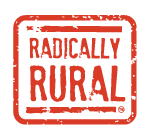Radically Rural – Remote Summit: Clean Energy Track sessions explore grassroots initiatives and simple actions that individuals can take to move closer to clean energy solutions for their communities.
At Radically Rural–Remote this year, Patricia Martin, clean energy track leader, hopes to engage participants in a discussion on how they can mitigate climate change through community collaboration. Martin, a leading advocate for renewable and clean energy in the Monadnock Region, has planned three sessions at Radically Rural-Remote on Sept. 24, which this year is being held online starting at 8 a.m. with a keynote speaker. Track sessions are planned at 9 a.m., 11 a.m. and 2 p.m. and a closing speaker at 4 p.m. In addition, organizers are working on an idea jam at 1 p.m., during which participants can share their best ideas for making improvements in the six track focus areas – community journalism, clean energy, downtowns, entrepreneurship, lands and community and arts and culture.
Community Choice Aggregation – 9 a.m.
Samuel Golding, president of Community Choice Partners, Inc., will discuss the benefits of Community Choice Aggregation (CCA) or Community Power. The many benefits of CCA include giving communities control over pricing, local power generation and storage and to demand greater percentages of renewable energy for their residents. These measures promote community collaboration, boost the local economy and support greater resilience, especially in rural areas. A panel of experts, including April Salas, sustainability director for the Town of Hanover; Lorenzo Kristov, a principal with Electric System Policy; and D. Maurice “Don” Kreis, consumer advocate for the N.H. Office of the Consumer Advocate, will present case studies of rural communities across the country that have transitioned to a CCA model. Participants will learn about legislation that authorizes CCAs and the difference between vertically integrated utilities versus deregulated ones. Participants will also be given resources and ideas for how they can promote the use of CCA models in their own small towns.
Carbon Pricing – 11 a.m.
Danny Richter, vice president of governmental affairs at Citizens’ Climate Education, dives into one of the most effective ways to combat climate change – putting a price on carbon. Session participants will be introduced to the MIT-developed interactive online tool, “EnRoads,” which allows users to explore scenarios for reducing greenhouse gases. Richter will discuss his work to build bi-partisan support for HR 763, the Energy Innovation and Climate Dividend Act of 2019. He will invite participants to join a panel discussion on the ways in which carbon pricing could have a positive impact on rural communities as well as the benefits of agricultural practices that support carbon sequestration and healthy soil for farmers.
Regenerative Agriculture and Carbon Sequestration – 2 p.m.
Farmers have experienced the environmental destruction that accompanies climate change. Altered growing cycles, soil health and scarce water have left many farms in alarming condition. However, it is perhaps the farmer’s most defining quality – persistence – that has spurred them to save the land on which they have toiled for generations. Dr. Adam Chambers, a leader in environmental markets at the U.S. Department of Agriculture’s National Resource Conservation Service, will speak on how regenerative agricultural practices help promote resiliency in the face of climate changes through carbon sequestration. Chambers will be joined by Dr. Keith Paustian, a senior scientist at Colorado State University’s (CSU) Natural Resource Ecology Lab. Paustian is a Nobel Prize winner for his work on the Intergovernmental Panel on Climate Change (IPCC), and a professor of soil and crop sciences at CSU. The two will discuss regenerative agriculture potential, current studies and the promise of monetization for rural farmers and foresters.
For more information on the Radically Rural – Remote Summit, or this year’s track themes, visit the event’s website at radicallyrural.org













